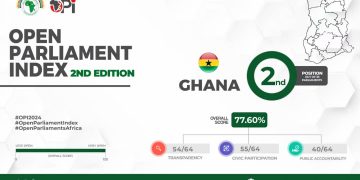Ghana’s structural challenges demand comprehensive solutions beyond IMF assistance – Bernard Avle
Ghana, a country with a rich history since gaining independence in 1957, has grappled with recurring fiscal and external imbalances for the past 65 years. These challenges have manifested in high inflation, declining reserves, a depreciating currency (the Cedi), and high interest rates. In a bid to address these persistent issues, Ghana has repeatedly sought financial assistance from the International Monetary Fund (IMF). However, the regularity with which Ghana and other countries in the global South seek IMF assistance points to deeper structural challenges that require comprehensive analysis and solutions.
Structural Challenges and the Limitations of IMF Programs
Bernard Avle, General Manager of Citi FM and Citi TV, recently emphasized that the reliance on IMF programs, which often focus on short-term fiscal discipline and policy prescriptions, fails to address the fundamental structural challenges faced by post-colonial economies like Ghana. Avle argues that these programs, designed with analytical tools that may not be well-suited for such economies, have not achieved the transformation needed to build dynamic and resilient economies capable of withstanding various shocks.
Avle’s assessment is supported by the recent track record of IMF programs in Ghana, including those implemented in 2003, 2009, and 2015. Despite their stated objectives, these programs have not succeeded in creating a dynamic and resilient economy capable of withstanding pandemics, external conflicts, or currency fluctuations. The focus of these programs has predominantly been on achieving macroeconomic stability, neglecting the deeper structural challenges that underpin Ghana’s economic vulnerabilities.
Burden of Dollar Dependency and Vulnerability to External Debts
One of the fundamental issues contributing to Ghana’s reliance on the IMF is the burden of dollar dependency. Like many other countries in the global South, Ghana heavily relies on imported food and fuel, which puts significant pressure on its currency and increases its vulnerability to external debts. This vulnerability is further exacerbated by the country’s focus on exporting cash crops, such as cocoa, as recommended by the World Bank during structural adjustment programs. Consequently, Ghana incurs substantial annual expenditure on food imports, contributing to trade deficits.
Moreover, Ghana’s energy mix heavily relies on imported fossil fuels, intensifying its petrodollar dependence. This reliance on external energy sources adds to the country’s vulnerability and limits its ability to control its own economic destiny. To break this cycle of dependence, Avle suggests that Ghana needs to prioritize economic sovereignty by reducing vulnerability to external debts, enhancing agricultural productivity, harnessing renewable energy sources, and developing value-added manufacturing.
Comprehensive Solutions for Economic Sovereignty
Avle points to countries like Israel and Costa Rica as examples of how comprehensive approaches can lead to economic benefits, reduced imports, and increased job creation. These countries have successfully prioritized economic sovereignty through strategies such as enhancing agricultural productivity, investing in renewable energy sources, and developing value-added manufacturing sectors. By following their lead, Ghana could reduce its dependence on external factors and gain greater control over its economic destiny.
Furthermore, Avle emphasizes the crucial role of high-quality education, particularly in business schools, in fostering economic development. Institutions like the Accra Business School can equip future business leaders with the necessary knowledge and skills to drive industrialization and enhance global competitiveness. By investing in education, Ghana can develop a skilled workforce that can contribute to sustainable economic growth and reduce the need for external assistance.
Breaking the Cycle of Dependence and Achieving Economic Transformation
Ghana’s recurring reliance on the IMF highlights deeper structural challenges that require a comprehensive approach. While short-term IMF programs may address immediate fiscal concerns, they fail to tackle the root causes of Ghana’s economic vulnerabilities. To achieve long-term economic stability and transformation, Ghana must prioritize economic sovereignty by addressing the burden of dollar dependency, enhancing agricultural productivity, harnessing renewable energy sources, developing value-added manufacturing, and investing in high-quality education.
Breaking the cycle of seeking IMF support has become a pressing task for Ghana. As the country moves forward, it must adopt a holistic approach that goes beyond mere fiscal discipline dictated by the IMF. By implementing comprehensive solutions tailored to its specific needs, Ghana can pave the way for sustainable economic transformation and job creation. Addressing the deeper structural challenges will require commitment, foresight, and a collective effort from the government, businesses, and the society at large. Only then can Ghana achieve true economic sovereignty and chart a prosperous future for its citizens.








